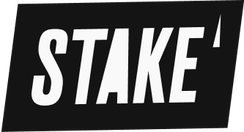Fractional Shares - The Definitive New Zealand Guide
Our guide explains fractional shares, their pros and cons, which investment platforms offer their purchase and sale, and must-know tips and facts.
Updated 14 July 2024
Know This First: What are Fractional Shares?
To explain fractional shares in detail, our guide covers:
Know This First: What are Fractional Shares?
- If you were to purchase shares in a company at $10 per share and a balance of $100, You'd be able to buy ten shares. If the share price was $100, you could buy 0.1 shares with $10. Fractional shares are a portion of a total share in a company's stock.
- When buying fractional shares, your shares are held in a custodial account or ‘street name’. The custodial account or ‘street name’ convention has made it possible to offer lower fees however are still owned by you.
- Fractional shares offer great ways of building diversified portfolios without the high-value cost.
- Over the last ten years, fractional shares have risen in popularity among young investors. Fractional trading platforms offer versatility when purchasing shares and allow any investor to get direct exposure without buying the entire share.
- Fractional shares also include exchange-traded funds (ETFs). Additionally, fractional shares act the same as regular shares, providing both dividends and voting rights. Shareholders can receive fractional shares through stock splits, mergers or acquisitions and dividend reinvestment plans.
To explain fractional shares in detail, our guide covers:
MoneyHub Founder Christopher Walsh shares his comments about Fractional Shares
|
Sharesies has arguably pioneered the way for New Zealanders to consider fractional shares, and I think that is a great thing for anyone wanting to learn more about investing.
While NZX-listed shares don't usually trade for over $100, US-listed shares price a lot higher - Alphabet Inc ($2,500+), Tesla ($800+) and Apple ($100+) are just some examples. Fractional shares let you buy a small portion and still get exposure to the company without the need to invest in an index fund or managed fund. In essence, fractional shares are affordable and easily bought and sold. While the potential returns of owning 0.10 of a Mainfreight share or 0.25 of a Tesla share won't be life-changing, fractional shares allow New Zealanders to have a direct investment and learn more about the company as a result. |
Pros and Cons of Fractional Shares (vs Full Shares)
Pros
Cons
- Affordable: To purchase a fraction of a share means you can invest what you have, usually with no minimum investment. On the other hand, full shares require you to buy a unit in full, accompanied by high fees making it unprofitable to buy smaller quantities.
- Dollar-Cost Averaging: With little to no fees, fractional shares allow those with lower incomes to benefit from dollar-cost averaging. However, dollar-cost averaging with Full shares may not be as viable due to higher fees per trade.
- Diversification: Low-income investors benefit because fractional shares make it affordable to diversify across various investments, leaving their eggs in multiple baskets. Full shares make it harder to achieve cheap diversification due to the high fees and purchase of the entire share.
Cons
- The Range of Stocks and ETFs are Limited: Fractional investment platforms may not provide every stock and ETF you're after. This selection will vary from platform to platform. Full share platforms will be able to provide access to all companies that trade on its exchange.
- Trade Execution Delays: Some investment platforms brokers may not execute your market order until there are enough orders to make a significant wholesale purchase. You may find the quoted price and the completed price may differ. Full shares will allow you to buy and sell the share without this delay in pricing.
- May not suit advanced traders: Fractional share providers offer many options for new investors looking to get their feet wet. In addition, most fractional share providers offer international market and shares trading. The difference is you won't find any advanced trading instruments (currently) such as options or futures that you could with Full share providers.
Platforms Offering Fractional Shares
Unsure where to start when it comes to fractional shares? Our list of platforms has you covered:
Sharesies
- What you can invest in: Companies, Exchange-traded funds (ETFs), Managed funds
- Order types: Market orders, Limit orders, Auto-invest
- Minimum investment: No minimum.
- Kids accounts: Yes
- Fees: Outlined in our Sharesies Review
- What share markets do they offer: New Zealand Stock Exchange (NZX), Australian Securities Exchange (ASX), Nasdaq, New York Stock Exchange (NYSE), and Chicago Board Options Exchange (CBOE)
More details: Visit Sharesies
Hatch
- What you can invest in: Companies, Exchange-traded funds (ETFs), Managed funds, American Depositary Receipts (ADR)
- Order types: Market orders, Limit orders, Stop-buy orders, Stop-loss orders, Auto-invest.
- Minimum investment: No minimum.
- Kids accounts: Yes
- Fees: Outlined in our Hatch Review
- What share markets do they offer: Nasdaq and the New York Stock Exchange (NYSE)
- Platform: Web
More details: Visit Hatch
Stake
- What you can invest in: Companies, Exchange-traded funds (ETFs), Managed funds, American Depositary Receipts (ADR), Inverse & Leveraged ETFs.
- Order types: Market orders, Limit orders, Stop-buy orders and, soon to be added: Margin Trading, Short selling, Options
- Minimum investment: $50 NZD deposit, $10 USD minimum for trades.
- Fees: Outlined in our Stake Review
- Kids accounts: No
- What share markets do they offer: Nasdaq and the New York Stock Exchange (NYSE)
- Platform: Web, IOS, Android
More details: Visit Stake
Superhero
- What you can invest in: Companies, Exchange-traded funds (ETFs), Managed funds, American Depositary Receipts (ADR), Inverse & Leveraged ETFs. Superhero has a dedicated page about Fractional Shares, however not all US Securities through Superhero are eligible for fractional share orders.
- Order types: Market orders
- Minimum investment: US$10.
- Fees: Outlined in our Superhero Review
- Kids accounts: No
- What share markets do they offer: Nasdaq and the New York Stock Exchange (NYSE)
- Platform: Web, IOS, Android
More details: Visit Superhero
Tiger Brokers
- What you can invest in: Companies, Exchange-traded funds (ETFs), Managed funds, American Depositary Receipts (ADR), Inverse & Leveraged ETFs. Tiger Brokers has a dedicated page about Fractional Shares, however not all US Securities through Tiger Brokers are eligible for fractional share orders.
- Order types: Market orders
- Minimum investment: No minimum
- Fees: Outlined in our Tiger Brokers Review
- Kids accounts: No
- What share markets do they offer: Nasdaq and the New York Stock Exchange (NYSE)
- Platform: Web, IOS, Android
More details: Visit Tiger Brokers
Frequently Asked Questions
Fractional shares are usually simple, but any investment carries risk so our list of anticipated questions helps explain what's important.
What happens to my money if my investment platform goes under?
Sharesies: All client investments and money are held within bare trust under Sharesies custodian company Sharesies Limited. All customer funds are held under a client trust bank account.
Hatch and Stake: Both platforms use Drivewealth as their US broker. If Drivewealth goes through insolvency, your shares are covered under the Securities Investor Protection Corporation (SIPC). This protects against the loss of cash and shares held by a customer at a financially troubled SIPC-member brokerage firm. The limit of SIPC protection is $500,000 USD, which includes a $250,000 USD limit for cash.
Our guide What happens to your investments if Hatch, Sharesies, Stake, InvestNow or other platforms shut down? has more details.
Hatch and Stake: Both platforms use Drivewealth as their US broker. If Drivewealth goes through insolvency, your shares are covered under the Securities Investor Protection Corporation (SIPC). This protects against the loss of cash and shares held by a customer at a financially troubled SIPC-member brokerage firm. The limit of SIPC protection is $500,000 USD, which includes a $250,000 USD limit for cash.
Our guide What happens to your investments if Hatch, Sharesies, Stake, InvestNow or other platforms shut down? has more details.
Are dividend reinvestment plans (DRP) available?
Fractional investment platforms such as Sharesies, Stake and Hatch don't offer dividend reinvestment plans ("DRP"). However, you’ll be able to participate in DRP with some other investing platforms - if this is important, make sure DRP is offered before signing up.
What is a share dealer/trader, and what does this mean for me?
If you buy shares intending to sell for a profit, Inland Revenue (IRD) may consider you a share dealer or trader. It’s the IRD’s responsibility to prove that you’re a trader if you are. The IRD generally looks at these behaviours as indicators someone may be a trader:
- Regularly buying and selling shares,
- Significant amounts invested in shares, especially when a portion is borrowed
- Buying highly volatile shares to flip at a profit (e.g., GME or AMC)
Do I have to pay tax in the US?
The providers in our list complete W8-BEN forms for the US Internal Revenue Service (IRS). These are to ensure the correct deductions for withholding tax is made on your behalf.










